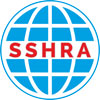
Submitted By:
Nino Nutsubidze
PhD Student, Georgian Technical University, Tbilisi, Georgia
Article
The recent pandemic in the shape of the new coronavirus COVID-19 has disrupted global economies and businesses and had unprecedented implications on organizations around the globe. The dramatic changes that were introduced due to the pandemic have influenced human resources management extensively. HR professionals were asked to navigate in the ambiguous present and unpredictable future by managing and guiding employees to cope with stress and adjust to the new remote working practices at an unprecedented speed, rate and scale. The coronavirus pandemic has forced HR professionals to rethink and redefine their role as the organizations started adjusting to enforced social distancing and a new working environment that they may have never imagined. The paper uses qualitative HR expert interviews as a research method. The article tackles to unveil the challenges HRM has been facing in Kuwait, determines the influence the crisis has on HRM and introduces the recommendations for managing the crisis from HRM point of view. The qualitative research findings indicate that organizations, alongside the HR professionals, should channel their efforts towards driving people transformation and enabling change, introducing flexible working practices, relying on new, innovative technology and developing the culture of trust & empathy to deal with the current or future crises.
Relevant Links: https://orcid.org/my-orcid
_________________________________________________________________
Disclaimer: Any opinions and views expressed in this submission are the opinions and views of the person who has submitted the article, and are not the views of or endorsed by the Social Science and Humanities Research Association (SSHRA). The accuracy of the content should not be relied upon and should be independently verified with primary sources of information. The person submitting the article does not necessarily be the author of the article. The Social Science and Humanities Research Association (SSHRA) shall not be liable for any losses, actions, claims, proceedings, demands, costs, expenses, damages, and other liabilities whatsoever or howsoever caused arising directly or indirectly in connection with, about, or arising out of the use of the content. For any issues or any reporting, write an email to convener@eurasiaresearch.info
___________________________________________________________________





